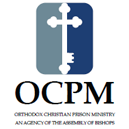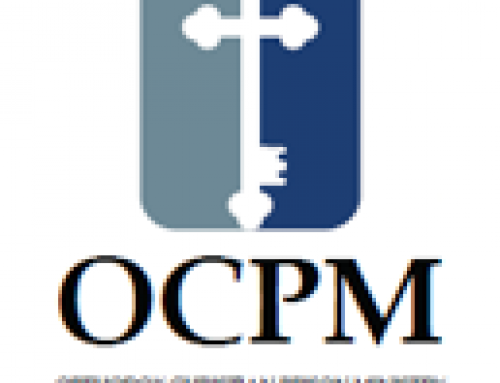This post was originally published on this site
“One of the criminals who were hanged railed at [Jesus], saying, ‘Are you not the Christ? Save yourself and us!’ But the other rebuked him, saying, ‘Do you not fear God, since you are under the same sentence of condemnation? And we indeed justly; for we are receiving the due reward of our deeds; but this man has done nothing wrong.’ And he said, ‘Jesus, remember me when You come into Your Kingdom.’ And Jesus said to him, ‘Truly, I say to you, today you will be with Me in Paradise.’” (Luke 23: 39-43)
In the Orthodox Church, we know well the words of St. Dismas, the thief crucified beside Christ: “Jesus, remember me when you come into Your Kingdom.” When we say these words in the Divine Liturgy, it is customary to make the sign of the Cross, symbolizing how we take St. Dismas’ prayer for our own. At the end of our lives, we too will ask God to deliver us into His Kingdom, so we practice this prayer now, in the Liturgy and throughout our lives. Like St. Dismas, we are preparing to die.
But what does it mean for a convicted criminal to be the first person ushered into the Kingdom of Heaven, ushered by God Himself on the day of His crucifixion? Hopefully, something that comes to our minds when we reflect on these Scriptures is God’s obvious dismissal of our judgments of other people. Indeed, St. Dismas was judged, found guilty, suspended on a cross—and according to St. Dismas himself, rightly so. “We are receiving the due reward of our deeds.” It is likely no one disagreed with him. For the crowd gathered at Golgotha, there must have seemed nothing redeemable about St. Dismas. But when Christ looked at St. Dismas, He saw his sincere repentance, his hope in the Lord. While St. Dismas was being executed, Christ saw him as His own.
However, there’s something more worth reflecting on in this scene. After St. Dismas pleaded for Christ’s mercy, and after Christ granted his request, promising St. Dismas that He would deliver him to the Kingdom, St. Dismas was not suddenly taken down from his cross. Nothing externally changed about his circumstances. While this exchange is recorded in St. Luke’s Gospel, we can still wonder, how many people in the crowd heard Christ offer His mercy to St. Dismas? How would St. Dismas’ onlookers know anything had changed for him, still dying on his cross?
Prisoners on death row or serving a life sentence, like St. Dismas, await their own death. Externally, nothing will change the darkness around them. If we look at these prisoners from an outside perspective, the way the crowd at Golgotha watched St. Dismas, we would see no redemption.
And yet Christ is working. Christ is healing prisoners in ways known only to each person, ways we may not see. Of course, it is a blessing when we can see Christ at work. If you have been following our Lenten series, #AscendingTogether you know the joy that can be found even on death row in prisoners like Thomas who, when receiving the Holy Eucharist, simply says, “This makes everything OK.”
But even for prisoners who don’t show any signs of Christ’s healing, who is to say nothing is changing on the inside? St. Dismas’ prayer was answered in his final breaths: “The Wise Thief didst Thou make worthy of Paradise, in a single moment, O Lord,” we sing on Great and Holy Friday. “By the wood of Thy Cross illumine me as well, and save me.”
As we enter into the Resurrection of Our Lord, please remember and pray for those in prison whose circumstances won’t change after Pascha—but pray believing, too, in Christ’s unseen and saving work in each of us.




